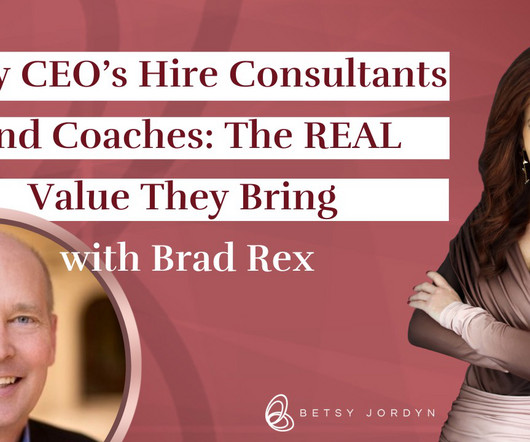Why CEO’s Hire Consultants and Coaches: The REAL Value They Bring with Brad Rex
Consulting Matters
APRIL 13, 2023
He applied for a financial manager job at Disney and was one of 1400 candidates. During his twelve-and-a-half-year tenure, he worked in finance and strategic planning before taking over as leader of Epcot theme park on the week of 911, 2001. Today, Brad Rex shares the real reasons why executives hire consultants and coaches.













Let's personalize your content